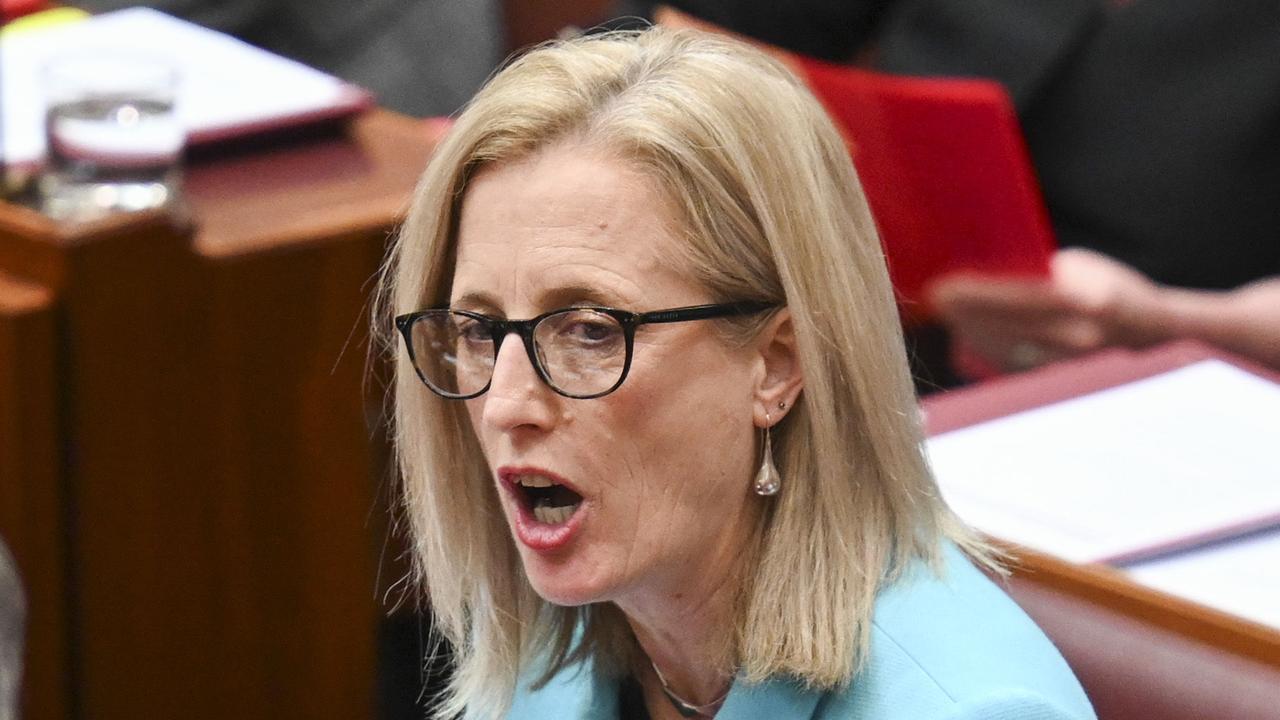Federal Budget 2014: Homeowners and the property sector winners
HOMEOWNERS dodged a bullet in this year’s Budget, with multi-billion tax breaks failing to come under scrutiny.

Fed Budget
Don't miss out on the headlines from Fed Budget. Followed categories will be added to My News.
HOMEOWNERS dodged a bullet in this year’s Budget, with multi-billion tax breaks failing to come under scrutiny.
Historically, real estate is a minor player during federal Budgets, with the industry managed more tightly under macro rather than micro positioning.
But as the magnitude of Joe Hockey’s austerity Budget became clear, the housing sector looked to be one of the most obvious sectors to stem tax leaks.
Among the potential pain points, there were fears the family home would be included in means testing for the aged pension, and that negative gearing would come under scrutiny.
With cost-cutting front and centre of Joe Hockey’s tough reforms, the $6 billion a year in lost tax revenue from negative gearing could have been a significant boost to Government coffers.
But projections in the Budget of rising unemployment may have kept property out of the firing line, at least for now.
All governments understand that joblessness poses a real threat to the property sector, reducing mortgage holders ability to service loans and bumping up defaults. An unemployment fallout doesn’t discriminate between first-home buyer belts and prestige property postcodes.
TAX PERK BUT FOR HOW LONG?
With negative gearing intact, investors can breathe a sigh of relief. But for how long?
The tax perk does little to boost housing supply and locks out potential buyers who are unable to compete with investors, so it deserves to come under the microscope.
Financial commentator David Koch says negative gearing is a perennial Budget consideration but the time is probably nigh when its rules will change.
“Given negative gearing doesn’t appear to be stimulating much in the way of new housing investment — the original intention — and we’re approaching the peak of a property boom, the timing of a change in future concessions is probably right,” Koch said earlier this month.
FAMILY HOME SAFE
There were no direct hits on the family home in this Budget either.
The CGT tax-free status for owner-occupier homes remained untouched, and more significantly the family home was excluded in pension means testing.
The Commission of Audit had proposed to include the family home in the assets test from 2027-28, but tonight’s Budget statement was succinct; ‘The Government will not include the family home in the means test for the Age Pension’.
BRW property rich-lister Kevin Young said fears of its introduction had made buyers skittish in the Budget lead up.
“Some buyers still aren’t convinced this type of means testing won't be introduced. down the track. A couple I know are so frightened by it, they recently bought a home in Bali rather than Australia,” Young said.
He said a sell-off of family homes, investing in exempt assets classes, and local buyers switching to offshore real estate were just a few of the likely outcomes had it been an inclusion tonight.

INCENTIVE CUT
First-home buyers saving for a deposit have lost an incentive with the scrapping of the First Home Savers Account (FHSA) in the Budget.
The Rudd government initiative, introduced in 2008, provided people saving for a deposit with tax breaks and co-contributions from the government.
Under the scheme, savers paid concessional tax rates of 15 percent on interest earned in the accounts and the government made a 17 percent co-contribution on the first $6000 contributed each year.
The government co-contributions to the accounts will end on July 1 and tax and social security concessions will be withdrawn from July 2015.
Mr Hockey said the accounts were being abolished because their low popularity.
The Government expects to make $143 million in savings over five years from its scrapping.
LOW RATES, CONSTRUCTION SURGE
Property’s peak national body the REIA had called on the Government toreview the amount of the First Home Owner Grant annually to maintain relativity with house price movements, but in this tough Budget that was unlikely to be a priority.
What’s more, the Government strongly outlined tonight that it expects interest rates to remain low in the medium to long term, creating less need for its intervention to boost housing activity.
The Budget also predicts a surge in construction, so more stock coming onto the market will improve affordability.
“The housing sector is beginning to respond to lower interest rates with a pick-up in prices and leading indicators of construction,” it said.
“These developments have contributed to an improved outlook for the household sector.”
VERDICT
Consumer reaction to the Budget will have an immediate impact on buying and seller activity, becoming apparent within weeks through auction attendance levels and clearance rates.
As the Government’s cost cutting flows through to household sentiment and the overall economy, the need for the central bank to tighten its macro policy will become less likely.
So at the very least, this Budget presents an upside for mortgage holders with its austerity keeping rates lower longer.
MONEYSAVERHQ: For more Budget news
Originally published as Federal Budget 2014: Homeowners and the property sector winners


